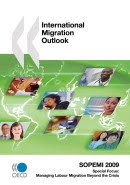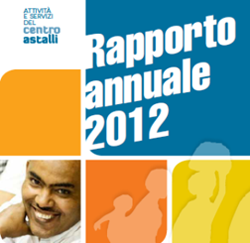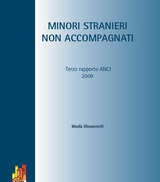Angela Merkel declares death of German multiculturalism
Chancellor's remarks, which claimed multiculturalism had 'failed utterly', interpreted as a shift rightwards from previous views
"We kidded ourselves for a while that they wouldn't stay, but that's not the reality," she said at a conference of the youth wing of her Christian Democratic Union party at the weekend, referring to the gastarbeiters, or guest workers, who arrived in Germany to fill a labour shortage during the economic boom of the 1960s.
"Of course the tendency had been to say, 'let's adopt the multicultural concept and live happily side by side, and be happy to be living with each other'. But this concept has failed, and failed utterly," she said, without elaborating on the nature and causes of this failure.
Merkel's verdict marks a shift in her previously liberal line on immigration which had always put her at odds with the more conservative wing of the party.
While she stressed in the same speech that immigrants were welcome in Germany and that Islam was a part of the nation's modern-day culture, her remarks positioned her closer to Horst Seehofer, the Bavarian state premier of the Christian Social Union, who last week called for an end to immigration from Turkey and Arab countries.
They also align her with Thilo Sarrazin, the former Bundesbank member whose book on how the failure of many of Germany's 16 million immigrants to integrate was contributing to Germany's decline led to his dismissal.
Sharing the same podium as Merkel in Potsdam, Seehofer also said "multiculturalism is dead" and that both the rightwing parties were committed to a "dominant German culture". If Germany did not revise its immigration policies, he said, it was in danger of becoming "the world's welfare office".
Seehofer insisted his statement was "an attempt to stop rightwing lunatics" but Jürgen Trittin, for the Greens, called the comments "shabby" and in danger of "lending social acceptability to views similar to those of rightwing extremists". There is a labour shortage in Germany. The chamber of industry and commerce has said Germany is short of 400,000 skilled workers and the gap costs €25bn a year, equivalent to 1% of growth annually.
While industrialists have called on the government to remove obstacles stopping more skilled workers entering Germany, citing lengthy bureaucratic procedures as well as unrealistic thresholds, others say that long-term unemployed German workers should be given more of a chance first. Merkel insisted in her speech that immigrant workers should not be considered "until we have done all we can to help our own people to become qualified and give them a chance".
The issue has caused tension within Merkel's year-old coalition with the pro-business Free Democrats.
Labour minister Ursula von der Leyen, a member of Merkel's party, has said it was an illusion to believe people were queueing up to enter Germany.
"For several years more people have been leaving our country than entering it," she said in an interview. "Wherever it is possible, we must lower the entry hurdles for those who bring the country forward."
Merkel faces pressure to take a tougher line on immigration, particularly on so-called "integrationsverweigerer" or those immigrants who show a lack of willingness to adapt to the majority culture, by, for example, refusing to attend German language classes.
While trying to embrace both sides of the debate, including repeatedly calling on Germans to accept that foreigners are a part of their country, Merkel cannot have ignored the popular response with which Sarrazin's book was received, nor the repeated polls in which Germans have indicated a growing intolerance towards immigrants which observers say is linked to fears about economic stability, even though the economy is showing strong signs of recovery.
Last week a study by the Friedrich Ebert foundation found more than 30% of people questioned agreed that Germany was "overrun by foreigners", while a similar number said they believed that some immigrants had only come to Germany to take advantage of its social welfare, and therefore "should be sent home when jobs are scarce".
Chancellor Angela Merkel says multiculturalism in Germany has 'failed utterly'. She tells a conference of the youth wing of her Christian Democratic Union party that Germans and foreign workers could not 'live happily side by side' Link to this video



















Nessun commento:
Posta un commento